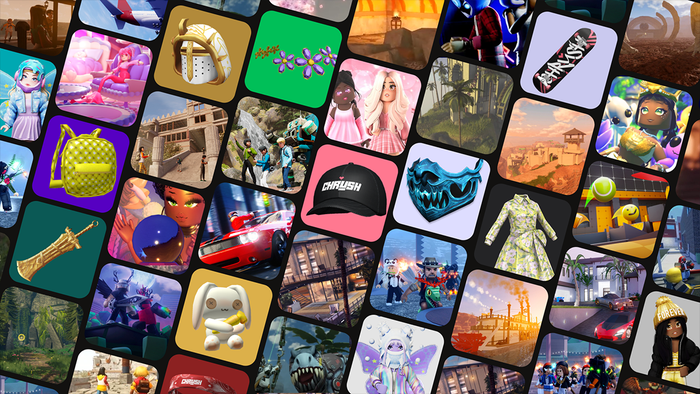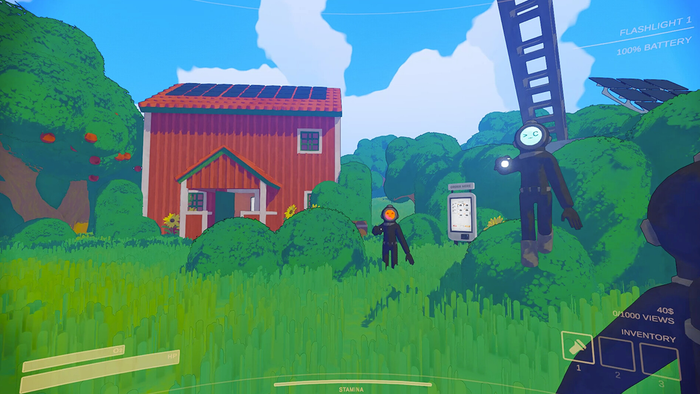Eight women received standing ovations after describing their experiences working in the video game industry at the #1ReasonToBe panel at GDC in San Fransisco last night.

Eight women delivered inspiring messages describing their experiences working in the video game industry in the #1ReasonToBe panel at the 2015 Game Developer’s Conference in San Francisco last night. The panel, which was inspired by the #1ReasonWhy and #1ReasonToBe hash-tagged discussions that emerged on social media in 2012, offered a microtalk-style celebration and exploration of what it means to be a woman working in the video game medium and industry. It was regularly interrupted by bursts of applause and standing ovations from a packed auditorium.
Leigh Alexander, prolific writer and editor-at-large at Gamasutra, who hosted the event with veteran designer Brenda Romero, spoke about the effects of the past year’s “episodes of intolerance and harassment” saying that they have worked to “drive away talent and make onlookers feel powerless.”
In response, Alexander urged the importance of action over words for those who work in the industry and who want to make the industry a more welcoming place for women and minorities. “Declarations make us feel better but [they] don’t build a world in which we are magically safe,” she said. “Think about our work and goals and take a lead on demonstrating what an ethical world would look like.” Alexander told attendees “creating spaces like this one in your work environment doesn’t have to be a huge upheaval. Simply create space for our experiences in our work and lives and listen to us.”
Elizabeth LaPensee, a game designer from Odaminowin Studio, then talked about her experiences making video and board games for and about indigenous people. She is, she said, interesting in adapting indigenous teachings that reconnect us back to the land. LaPensee talked about how she is often met with expressions of disbelief at the idea that American Indians make games. “But indigenous communities have always had technology,” she said. “We’ve always made and passed on games as a way to balance our mind, body and spirit – and to keep warm in the winter. I believe that games are some of the best ways to reach community members. I hope to see more of this kind of work and more indigenous games in general. There is so much more to share.”
Romero then placed an empty chair on stage to represent the women and marginalized people who were unable to attend the panel, either because their companies disallowed it, or because they had walked away from the industry during the past year. Quotations from some of these people were displayed on stage while the audience read them in silence.
"I can't talk; my company won't let me."
"I am terrified of the harassment that might ensue from being on camera."
"No woman in the industry has the luxury of not worrying about this."
"Just because harassment didn't happen to you doesn't mean it’s not happening."
"Read the comments. Pretend they’re talking about your daughter."
Next, Constance Steinkuehler, a professor from the University of Madison Wisconsin and a former advisor on video games to the Obama administration in the White House took to the stage. “I study the intellectual life of games,” she said. “And this means I do a lot of work combating the idea that games are nothing but stupid or torpid, or tapped onto ill behavior. I spend a lot of time defending the industry.”
Steinkuehler said that she often finds that she is the only woman in the room. “In technology, once you rise the food chain you become only one of the women who is there.” But she said that this is changing in the video game industry. “33 percent of students in graduate video game programs are women,” she said. “We are increasing diversity. We are moving toward parity between men and women employees in video games.”
Amy Hennig, senior creative director and Electronic Arts, a designer whose credits include the Uncharted series, Legacy of Kain and Michael Jordan Chaos in the Windy City Wings took to the podium. Hennig, who rarely speaks at events in public, told of how she was a film studies student when she had a realization that the video game industry “was a new frontier, unencumbered by the prejudices I’d seen in the film industry from my view at film school.”
She described her subsequent experiences working in the video game industry as being overwhelmingly positive. “In my 25 years I virtually never experienced harassment and discrimination,” she said. “In less than two years I went from a junior designer to a lead, and within two more I was a game director. I may just be oblivious, and if so that tactic has worked for me, but the fact is this industry has been a bastion of opportunity.”
Hennig continued: “The internet is a toxic place, and gamer culture can be noxious, but these things are not the game industry. For me, the game industry is a place of joy and camaraderie. It was a place of opportunity when I joined, and it’s still that frontier that seduced me away. Negative elements are unacceptable; they can make the castle seem like a nightmare. But this is not the game industry; we are scaring young women off. We need to fight misogyny. We need to show it as the welcoming castle I believe it to be. We have a lot of work to do: women are underrepresented. For me the reason to be here to tell other women that this is a good place to be: come on in; the water’s fine.”
Sela Davis, a software engineer at Microsoft then talked about her experience of imposter syndrome. “I think that’s why a lot of young women don’t apply to work in games because they feel dis-encouraged to try. Davis quoted a friend saying: "the reason we struggle with insecurity is because we compare our behind the scenes with everyone else’s highlight reel." Davis explained that she is in the industry thanks not to her own self-belief, but to the support and encouragement of others. “Encourage one another,” she said. “Often we neglect to do so. And often we neglect to hear that praise.”
Adriel Wallick, the game-maker known as MsMinotaur also described her experiences of support within the industry. “When I first started making games I had no idea where to start,” she said. “I started going to developer meet-ups and people there introduced me and explained the inner workings of their games.” Wallick, who lives what she describes as a nomadic lifestyle, said that it’s the "generosity of fellow developers that has allowed her gain new perspectives on the world” have supported her existence.
Wallick said that she was relieved to hear Hennig’s positive experiences working in the industry for decades. “The game development community took me into their homes,” she said. “People inspired me each week and supported me when I needed them, and celebrated with my successes.”
Finally Katherine Cross a Phd student at CUNY Graduate Center who studies video games and harassment said that she was inspired to write about games because they are “powerful cultural artifacts, whose dimensions we are only just beginning to understand.” Cross described her experiences with harassment during the past year and said that she was tempted to walk away from the career she had built. “I was tempted to do anything to make the pain stop. But I decided to write about games more than ever.”
Her resilience is due to a belief in the medium and the worth of critics. “The future demands more and more variety of research and criticism,” she said. “Games matter; the people who play games -- whatever they call themselves -- matter. For all the hell I’ve been put through over the last six months, I’m not going anywhere. I’m going to stay and there is nowhere else I would rather be. “
Read more about:
event gdcAbout the Author(s)
You May Also Like







